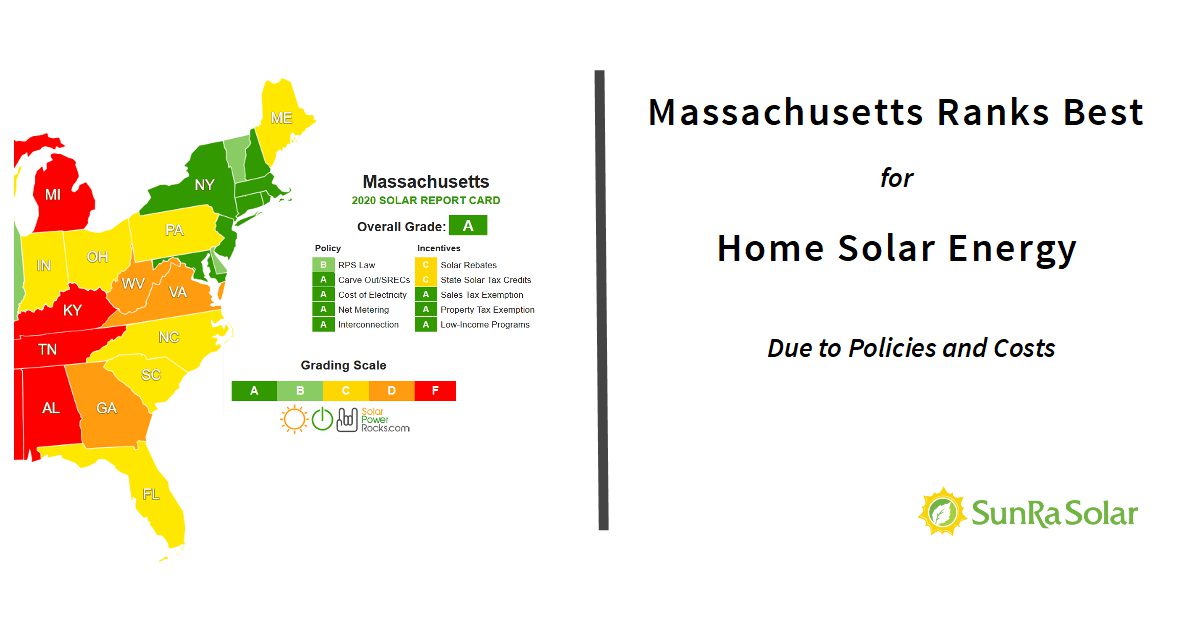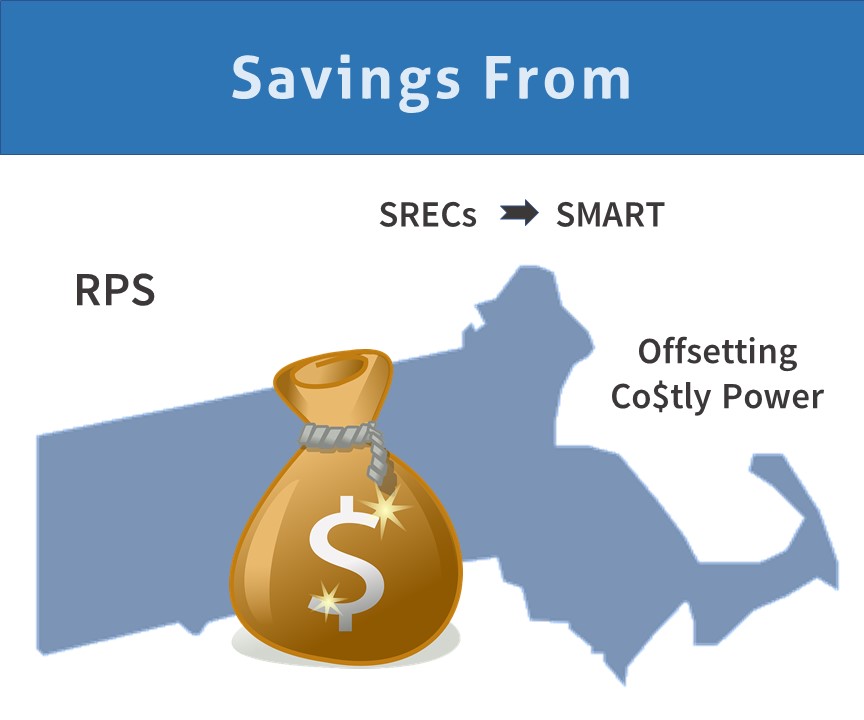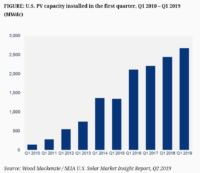
With high electricity prices and well-designed state renewable energy policies, in 2019 Massachusetts again ranked in the top of all 50 U.S. states for rooftop solar on homes.
A solar energy information website aimed at homeowners and consumers, Solar Power Rocks, produces an annual report detailing policies and incentives for each state. These reports use the organizations’ specific method to evaluate and compare every state using selected criteria, ultimately creating a ranking system. From best to worst, Grade A to Grade F, these relative measures assess the impact and value of policies as well the ability to save.
The group gives Massachusetts an overall Grade of A.
Key Factors for Solar Power in Massachusetts
While this particular organization may not be the authority, the report is detailed and provides useful information that can be compared. Here are a few of the policies, incentives, and facts we at SunRa Solar feel are significant in giving Massachusetts the best savings from solar:

A sufficiently aggressive Renewable Portfolio Standard (RPS) sets the requirement that 50% of all the power generated in the state must come from renewable sources by 2045. It escalates 1% per year after that.
The evolution from Solar Renewable Energy Credits (SRECs) to the current Solar Massachusetts Renewable Target (SMART) program. This is a progressive solar incentive system which aims to help accelerate low-income, small scale, residential, and community solar energy projects.
The continued support for net-metering policy. Where offered and available, net metering allows customers to offset their energy use and transfer energy back to their electric companies in exchange for a credit. This importantly gives us the freedom to size solar energy systems to maximize power generation during peaks regardless of the homeowner’s needs at that time. In our state, utilities are allowed to discontinue offering the policy when reaching a preset net metered proportion of their total energy load.
The high cost of electricity. Bay State costs continue to rise and remain more expensive than 45 or more of the 50 states.
Looking Forward – Solar in 2020
Programs and incentives continue through 2020. As we reported earlier, to meet its legal obligation, Massachusetts will expand solar energy incentives. This will not replace the current SMART program, rather it will expand it after the initial 1.6 GW allowance is reached.
By expanding the solar incentives, the state is giving homeowners and company investors greater certainty about the future of solar power. However, the goal is simply to let the market grow while maturing. As solar panel and component prices hit historic lows, the intent is to reduce incentives in response.
So, as implemented and with the proposed expansion, the SMART program will continue with declining incentives. Across the U.S. and locally, 2020 is forecast to be another record breaking year for solar energy installations. But in Massachusetts, the sooner you invest, the better you SMART program position will be. And should you wait another year, your federal incentives will decrease as well.



